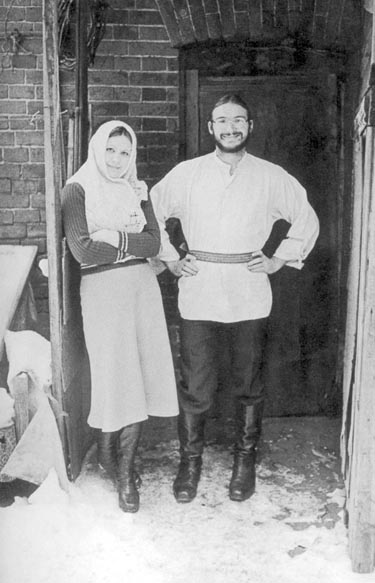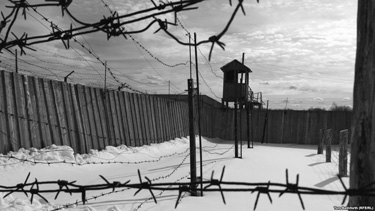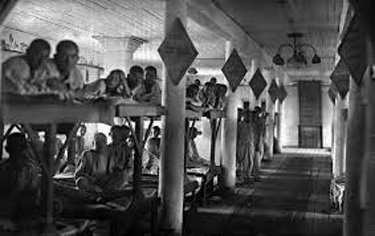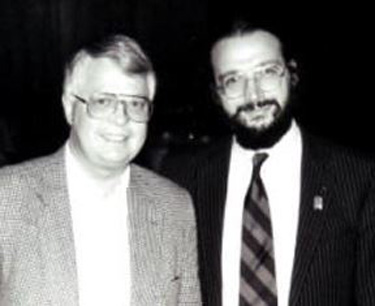By Mark Ellis

Alexander Ogorodnikov grew up in the former Soviet Union at a time when the communist government wanted to rid society of all religious influences. While his father was a loyal member of the Communist Party, his grandmother had him secretly baptized.
“After the Revolution the Bolsheviks declared a war on Christianity,” Alexander noted, in a talk he gave at Cambridge in 2012. “It all started when Trotsky and Lunacharsky gave God the death sentence and decided that God should be shot and executed.
“This was taken quite seriously and was not just a joke, they really thought this should be done,” he added. “Their ultimate aim was to create a new man, Homo Sovieticus – The Soviet Man.”
The persecution of believers was relentless. “A great many clergy, priests, deacons, monks and nuns were killed by crucifixion, killing, shooting, drowning an all sorts of terrible ways,” Alexander recounted.
“One of the things the Bolsheviks would do at this time was to bury people alive, priests, monks, nuns. Witnesses say that they could hear the singing of hymns and prayers – so much so it looked as if the earth was alive, it was moving and shifting simply from the amount of people buried alive.”
There was a mindless fanaticism to their hatred of Christians. “These were not just atheist, but anti-theist, God haters. This was their religion, that is, ardent belief against God. They represented people who not only denied the existence of God, but people who fanatically hated God and did everything they could against him. This was their new religion – fervent hatred for God.”
Although raised an atheist, as a college student at the University of the Urals Alexander began to question the prevailing ideology of dialectical materialism. The university expelled him for a “dissident way of thinking” incompatible with the school.
Later he enrolled at the Institute of Cinematography in Moscow. In his quest for truth, he became a Christian believer after he watched “The Gospel According to Saint Matthew” by Passolini.
Alexander received his first communion at an Orthodox Church in Moscow from a bishop visiting from London. After his religious faith was discovered, he was once again dismissed from school.
Somehow, Alexander began to build a network with other young Christians from the intelligentsia. He founded an underground group known as the “Christian Seminar,” whose participants read the Bible and discussed theology and faith.

Slowly, the authorities gathered evidence against the group. As the leader of the seminar, Alexander was the first to be detained. Most of those involved were arrested, put through show trials and deported to forced labor camps known as gulags.
In 1976, at the age of 25, Alexander was sent to a psychiatric institution — a hospital “for the criminally insane” — and he received antipsychotic medication. The authorities viewed his Christian faith as a mental disorder.
After his release, he was re-arrested in 1978 and sent to a Soviet gulag until 1987.
In 1992, after the collapse of the Soviet Union, Christian journalist Dan Wooding interviewed Alexander in Moscow.
“While in the Gulag, Alexander went on many hunger strikes,” Wooding learned from Alexander. “The guards would take his Bible and Orthodox Cross, which he wore around his neck, from him, and so he would then refuse to eat. He would say, ‘I would rather die than be without the Word of God.’”
After five years of this terrible existence, Alexander wrote a letter to Mikhail Gorbachev telling him that he was a Christian living in the gulag and that he had not received one visit or even a letter from a Christian in five years.
Alexander said he knew it was a sin to commit suicide, but he wanted to go home to be with Jesus and he

asked if he could be “executed by a firing squad.”
While Alexander was imprisoned in the gulag, Wooding managed to find the mailing address of the labor camp where he was being held, Perm 36, near the Siberian border.
Wooding went on a Christian TV program in the U.S. and asked Christians to not only pray for Alexander, but also bombard the camp with letters of support, which they did.
Apparently, Margaret Thatcher, then Prime Minister of Great Britain, had heard of his case and, during a visit to Moscow, she forcefully urged Gorbachev to free him, in a way that only the “Iron Lady” could do.

Amazingly, Gorbachev agreed to free Alexander, and a few years later he met with Wooding in Moscow, where he ran a home for battered women and children.
Over breakfast, Wooding asked the former dissident, “Did you ever see the letters?”
“Yes, they would take me into a room filled with sacks of mail, but then would not let me read any of them,” Alexander recalled. “I can’t describe the feeling I got when I realized that people did care after all.”
He then stared very intently and asked, “Did you also ask people to pray for me?”
Wooding nodded.
“I thought so,” he continued as he took a sip from his coffee cup. “Let me tell you what happened. After they

would show me the sacks of mail, which I guessed were from America, they would take me to a punishment cell where they hoped I would die from the cold.”
“I would just have flimsy clothes on and the cell was like a block of ice. I would begin to shiver and soon hypothermia would set in and I knew that I hadn’t got long to live.”
“Then a miracle would happen. I believe that God would wake up someone who saw you on television there in America and they would begin to pray for me and suddenly I felt God’s arms wrap around me like a comforter and warmth would flow back into my freezing body.”
God supernaturally intervened in response to the prayers of the saints! He wrapped his loving arms around Alexander in his desperate condition.
“This happened several times!” Alexander exclaimed.
“I want to again say, ‘Thank you for caring.’”




Why do these accounts not stay with us Christians? We know the mainstream media does not want to hear about any of this, but why are we Christians and our churches so reluctant to share this good news? Thank you for the efforts of those Christians who sought the freedom of Alexander. Thank you my Lord for preserving his life and his faith. I am inspired.
Dan Wooding is to be commended for his incredible, compassionate journalism. Mark, thank you for sharing and making this story come alive for all of us once again.
“There was a mindless fanatasism to their hatred of Christians” The best description l’ve ever read and it is still so true today! We are hated and persecuted in different ways than what Alexander went through but, like him, we need to persevere.
Awesome testimony of our awesome God that will never give up on us – even if we find ourselves exiled and in bitter cold trenches.
Thanks, Sonja, you explained it well.
I do not think I could be more Catholic and grateful for what God has revealed to us, but to be honest, the most prominent emotions or contemplations that occupy my mind (when free) each day are either focused on God and theology or some kind of fear. You probably get the idea without my having to expound on it. But even though I often pray that prayer “Jesus I Trust in You” (which I love) it still seems the most difficult command of God to follow is “Be not afraid.” :0 How??? 🙂
Comments are closed.